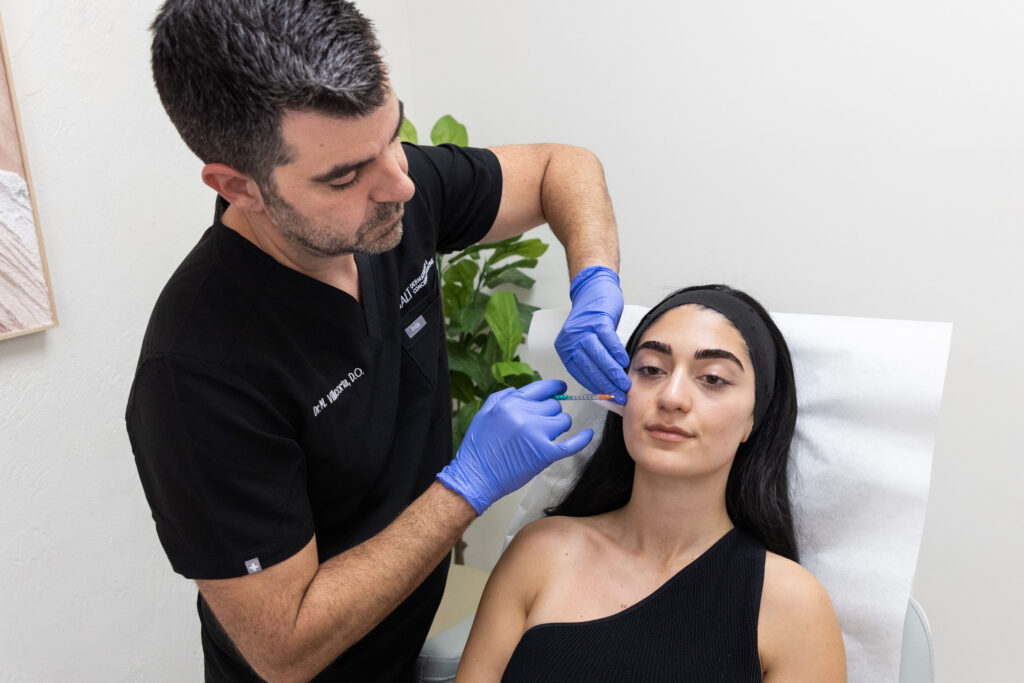
Nowadays, nobody is really a stranger to the magic of Vitamin C. From brightening brown spots to fading acne scars and even aiding collagen synthesis for smoothing wrinkles, Vitamin C has earned the title as King of all skincare ingredients.
If you’ve ever had a strange experience with Vitamin C, you’re not alone. Naturally, Vitamin C is a highly unstable ingredient, and if your product is expired, your Vitamin C serum may stain your skin or even make the skin pigment appear darker.
When formulated, your Vitamin C becomes a photosensitive product, meaning it is fragile when exposed to light. This is why formulas in dark bottles have a longer shelf life than those that come in a clear pump. Vitamin C also quickly oxidizes if it is exposed to air, so always be sure you tightly close your bottles and store them in a cool, dark environment. Your refrigerator or even a “skin-fridge” is ideal if you wish to be diligent about protecting and extending your products’ shelf life.
Stability and Strength
L-ascorbic Acid has been proven to be the most potent form of Vitamin C. However, with formulas of this strength, L-ascorbic Acid tends to be less stable than its lower-strength alternatives. This may be the one downside to using medical-grade Vitamin C serums, as they will require consistent, daily use to remain effective before expiration. You’ll know your product has gone bad if it imparts a yellow-orange tint onto your skin or smells a bit funny. Many people have referred to expired Vitamin C scent as the smell of hot dogs or hot dog water.
What typically makes the Vitamin C solution unstable is when it is suspended in water and combined with other liquids to create the serum you use. While serums are highly effective for their quick penetration, to reach the deeper layers of the skin and effective product layering, you may wish to explore other forms of Vitamin C to add to your daily skin regime. Vitamin C powders have gained more popularity over the past decade for their superior stability and versatility. For some, using a Vitamin C powder will further simplify their everyday skincare routine, as the powder is very easy to add to your favorite lotions, night creams, and facial masks. If you choose to explore powdered Vitamin C, look for one that contains L-ascorbic Acid as the primary formulation, so you have the best of both worlds when it comes to stability and efficacy.
Better Together
While Vitamin C is certainly potent and effective on its own, certain ingredients give Vitamin C an additional “boost,” enhancing your results when used consistently. For example, Vitamin E is an everyday companion found in many C serums and solutions today. Vitamin E is another potent antioxidant and free-radical fighter, so it makes sense to use the two together. Ferulic Acid is another popular ingredient often combined with Vitamin C, and Ferulic Acid will help stabilize and extend the product’s shelf life.
Vitamin C is an Autumn Staple
As the seasons transition from sunny summer days to colder autumn and winter months, now is the perfect time to add Vitamin C to your routine. Harsh winters and lack of sunlight rob your skin of its natural glow, and Vitamin C will help to brighten any dark spots or hyperpigmentation you may have from laying out in the sun during the summertime.
Several of Galt Dermatology’s Facial Treatments use Vitamin C to help you revive your glow, including the ever-popular VI Peel and Neova Infusion Peel. Our physicians recommend a combination of exfoliating treatments and brightening treatments (such as dermaplaning with a brightening peel or our Red Carpet Facial). If you need some help choosing the most appropriate Vitamin C facial for your skin, schedule a complimentary 30-minute consultation with our board-certified dermatologist, Dr. Miguel Villacorta. If you need help choosing skin care products and a skincare routine that utilizes Vitamin C, schedule a personalized and complimentary in-office or virtual skincare consultation today.


